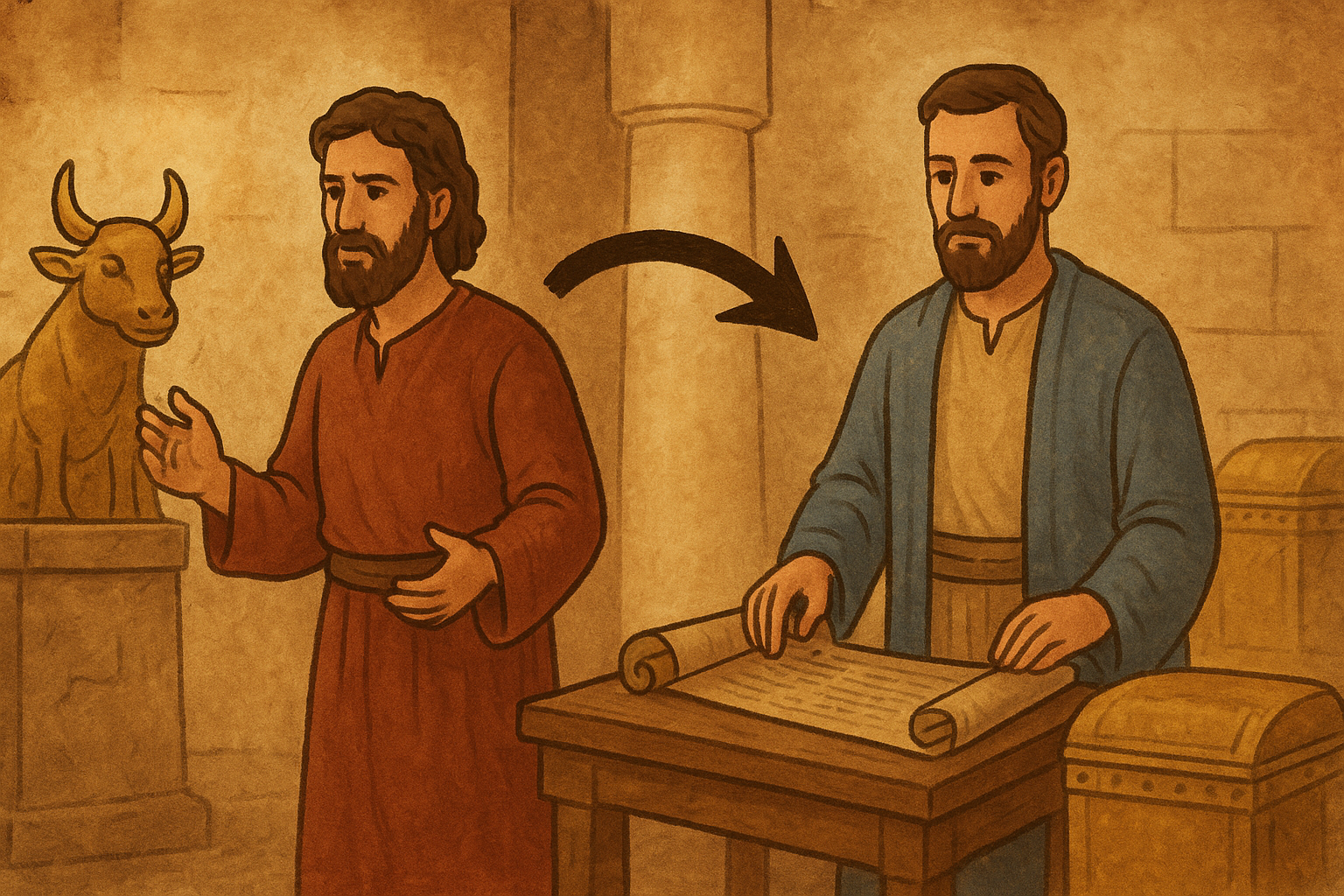
When Moses’ Grandson Became an Idol Priest
Hidden in the closing chapters of Judges is a verse that startles anyone reading closely.
“And the people of Dan set up the carved image for themselves, and Jonathan the son of Gershom, son of Moses, and his sons were priests to the tribe of the Danites until the day of the captivity of the land.” (Judges 18:30)
Doesn’t it strike you that Moses’ own grandson, Jonathan, is found serving as a priest to an idol in the northern tribe of Dan? The grandson of the one who gave Israel the law of God has given himself to lawless idolatry and in doing so associates the name of his grandfather with a shrine of rebellion. It’s a sobering reminder that godliness is never inherited, which underscores the need to faithfully pass the fear and knowledge of God to the next generation.
What makes this sentiment all the more somber is that the author tells us that this continued “until the captivity of the land,” probably referring to the Assyrian exile. For centuries the shrine at Dan remained an idolatrous house for the people of God to whore after the gods of the nations.
One might be tempted to simply write this off as a sad note of how the line of Moses fell into disrepute and a reminder of why we must pass the fear and knowledge of God on to our children, lest they do the same. However, centuries later, Scripture introduces another descendant of Moses.
“Shebuel the son of Gershom, son of Moses, was ruler over the treasuries.” (1 Chronicles 26:24)
Do you notice the change? The family of Gershom, which in Judges gave itself to idolatry, is now seen serving over the treasuries in God’s house. The story that began in apostasy ends in faithfulness. The line of Moses, once corrupted, is reclaimed for true worship, a vivid reminder that salvation and service are always by God’s grace, not our inherited holiness.
A small textual detail in Judges, unseen in English, hints at this tension. In the Hebrew text, the name “Moses” is written unusually. A single letter hovers above the line, turning “Moses” into “Manasseh.” It appears the scribes, unwilling to erase the truth yet trembling to associate Moses with such wickedness, allowed a single letter to hover above the line. It is as if, with the suspension of a letter, the text holds its breath and the tension between truth and mercy is captured. Moses’ grandson really did fall, yet grace still hovered over the broken line, awaiting its restoration in later generations. By the time of David, the same family that once served before idols now served before the ark of the covenant.
This small genealogical thread tells a larger story. Even the most faithful families can forsake God. Spiritual pedigree and heritage is no guarantee of holiness. But neither is failure the final word. The Lord God who judged the idolatry at Dan also redeemed the line of Gershom for His service in Jerusalem.
The suspended letter in Judges reminds us that sin and moral failure are realities that cannot be ignored, and yet God’s grace in Christ writes a new chapter in the lives of sinners. Between Dan and Jerusalem, between fall and restoration, God’s faithfulness and steadfast love redeems even idolaters.
Subscribe to get the latest posts sent to your email.

2 responses to “When Moses’ Grandson Became an Idol Priest”
Thank you for this great reminder. You’ve been away awhile. We’re glad you’re back.
Thanks very much, I’m glad to be back!